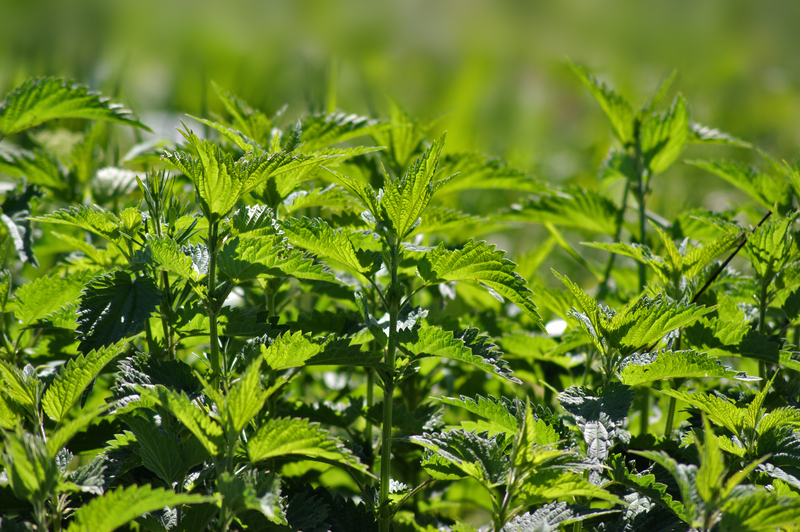Organic Waste as a Catalyst for Soil Health
Posted on 30/08/2025
Organic Waste as a Catalyst for Soil Health: A Comprehensive Guide
In today's agricultural and environmental landscapes, the significance of organic waste in promoting and revitalizing soil health has attracted growing attention. Understanding how organic matter serves as a catalyst for fertile, productive, and sustainable soils is a crucial foundation for eco-conscious gardeners, farmers, and policymakers alike. This article delves deep into the ways that organic waste transforms soil ecology, improves plant growth, and supports broader sustainability goals.

What is Organic Waste?
Organic waste encompasses any biodegradable material originating from plant or animal sources. This includes kitchen scraps, garden trimmings, leaves, manure, agricultural residues, and more. When disposed of appropriately, these materials break down naturally through biological processes, contributing to soil enrichment instead of merely adding to landfill mass.
- Food Waste: Fruit and vegetable scraps, coffee grounds, eggshells
- Yard Waste: Grass clippings, fallen leaves, branches
- Animal Waste: Manure, bedding
- Agricultural By-products: Crop residues, straw, husks
How Organic Waste Enhances Soil Health
The practice of returning organic materials to the earth can transform soil structure and fertility. This is due to a variety of physical, chemical, and biological processes that unleash the hidden potential within soil systems. Let's explore these mechanisms in detail.
The Role of Organic Matter in Soil Structure
As organic waste decomposes, it releases humus--a dark, nutrient-rich substance that binds with mineral particles to promote soil aggregation. This improves:
- Soil Aeration: Better air circulation allows roots to breathe and fosters beneficial microorganisms.
- Drainage: Enhanced structure prevents waterlogging and encourages healthy moisture balance.
- Water Retention: Humus-rich soil holds on to water, reducing the need for frequent irrigation.
In short, converting organic by-products into compost or directly applying them as mulch or green manure is essential for maintaining loose, friable soil where plant roots can thrive.
Organic Waste as a Nutrient Source
Soil health is inextricably linked to nutrient availability. Organic residues are nature's slow-release fertilizer, supplying a balanced blend of macronutrients and micronutrients, including:
- Nitrogen (N): Vital for leaf and stem growth
- Phosphorus (P): Encourages strong roots and flowers
- Potassium (K): Enhances disease resistance and vigor
- Calcium, Magnesium, Sulfur, and Trace Elements
As organic wastes break down, microbes decompose the material and release nutrients, which become available to crops and ornamental plants over time.
Microbial Activity and Soil Life
Healthy soil teems with microscopic organisms. Bacteria, fungi, earthworms, nematodes, and arthropods all depend on organic inputs for energy and growth. These organisms, in turn, create a thriving, self-sustaining ecosystem that:
- Converts nutrients into forms plants can readily absorb
- Suppresses disease-causing pathogens
- Improves soil resilience and carbon storage
Regular additions of organic waste accelerate soil biological activity, cultivate beneficial microbial populations, and ultimately foster a healthier, more productive landscape.
Types of Organic Waste Utilization in Soil Health
There are several practical methods of incorporating organic waste for soil improvement:
- Composting: The controlled breakdown of organic materials into nutrient-dense humus. Finished compost improves soil fertility and structure.
- Mulching: Applying a layer of organic material (like leaves, grass clippings, or straw) to the soil surface suppresses weeds, retains moisture, and feeds soil life as it decomposes.
- Green Manure: Growing and then turning under fast-growing plants (like clover or vetch) directly enriches the soil.
- Direct Incorporation: Plowing crop residues or kitchen waste directly into the soil encourages on-site decomposition.
- Vermicomposting: Utilizing earthworms to accelerate organic matter breakdown and improve nutrient cycling.
Environmental Benefits of Using Organic Waste in Soil
Leveraging recycled organic matter for improving soil delivers a multitude of environmental and economic benefits, such as:
- Waste Reduction: Diverting kitchen and garden wastes from landfills reduces methane emissions and landfill volume.
- Lower Chemical Inputs: Enhanced natural fertility minimizes reliance on synthetic fertilizers and pesticides.
- Climate Change Mitigation: Organic waste recycling leads to carbon sequestration in soils, helping to offset greenhouse gas emissions.
- Biodiversity: Healthier soils support diverse plant and animal communities both above and below ground.
Case Studies: Successful Use of Organic Waste for Soil Revitalization
- Urban Ecosystems: Cities worldwide have launched composting initiatives, converting food scraps and yard trimmings into soil amendments for parks, gardens, and green roofs.
- Regenerative Agriculture: Organic farms utilize compost, cover crops, and managed grazing to build soil fertility and reduce input costs.
- Reclamation Projects: Mining lands and degraded soils are rehabilitated through the intensive application of composts and organic mulches, restoring functionality and productivity.
Key Challenges in Utilizing Organic Waste for Soil Health
Despite the many advantages, effective recycling and use of organic waste as a soil catalyst faces several obstacles:
- Contamination: Non-biodegradable items and chemical residues can reduce compost quality and pose risks to plant and human health.
- Logistics: Gathering, processing, and distributing organic materials can be challenging at large scales, particularly in urban settings.
- Balancing Nutrients: Excessive or unbalanced applications may cause nutrient runoff or other environmental issues.
- Public Awareness: Lack of knowledge or misconceptions about composting and organic waste recycling limit widespread adoption.
Best Practices for Utilizing Organic Waste to Boost Soil Quality
1. Effective Composting
- Maintain proper ratios of "browns" (carbon sources, such as dried leaves) and "greens" (nitrogen sources, like food scraps).
- Turn compost regularly to allow for aerobic decomposition.
- Avoid: Diseased plant material, meats, or oily foods, which can attract pests or introduce pathogens.
2. Mulch Smartly
- Apply mulch in a 2-3 inch layer to ensure soil protection without suffocating roots.
- Use untreated, herbicide-free materials.
3. Rotate Green Manures
- Integrate a variety of cover crops to supply diverse nutrients and disrupt pest and disease cycles.
4. Monitor and Test Soil Regularly
- Soil testing helps calibrate organic matter application for optimal nutrient balance and avoids over-application.
Future Perspectives: Scaling Up Organic Waste Management for Global Soil Health
The transition from linear (wasteful) to circular (recirculative) systems is central to 21st-century sustainability. Efforts to scale up organic waste recycling for soil restoration will require:
- Policy Support: Governments must incentivize composting and organic waste collection while regulating contamination.
- Community Engagement: Education, demonstration projects, and urban agriculture initiatives can shift public behavior toward organic waste valorization.
- Research & Innovation: Ongoing scientific research will optimize best practices, streamline logistics, and harness new technologies--such as biochar or anaerobic digestion.

Frequently Asked Questions About Organic Waste and Soil Health
-
Q: Is all organic waste suitable for soil application?
A: While most plant-based material and manure are excellent choices, avoid adding meat, dairy, chemically treated wood, and diseased plant matter, as they can impede decomposition or introduce harmful elements. -
Q: How long does organic matter take to improve soil?
A: Positive effects can appear within a few months, but long-term improvement comes with regular addition and management over several seasons. -
Q: Can organic waste replace synthetic fertilizers entirely?
A: In many cases, high-quality compost and mulches can provide sufficient nutrients for gardens and small farms, though larger-scale or intensive systems may supplement with targeted fertilizers until soil recovers fully. -
Q: What are the signs of healthy soil resulting from organic additions?
A: Dark, crumbly structure; earthworm activity; abundant plant growth; good moisture retention; minimal disease outbreaks.
Conclusion: Organic Waste as a Sustainable Catalyst for Soil Vitality
The thoughtful recycling and application of organic waste as a soil health catalyst holds astonishing potential for our farms, gardens, and landscapes. Not only does it revitalize depleted soils, but it also aligns perfectly with global ambitions for sustainability, circular economies, and ecological stewardship.
As we embrace the practice of returning our food, yard, and agricultural by-products to the earth, we pave the way for richer harvests, enhanced biodiversity, lower environmental impact, and healthier communities for generations to come.
Start today: Compost at home, support community initiatives, and advocate for soil-friendly organic waste practices. Every banana peel, leaf pile, and scoop of compost is a small but powerful step toward a greener future.



